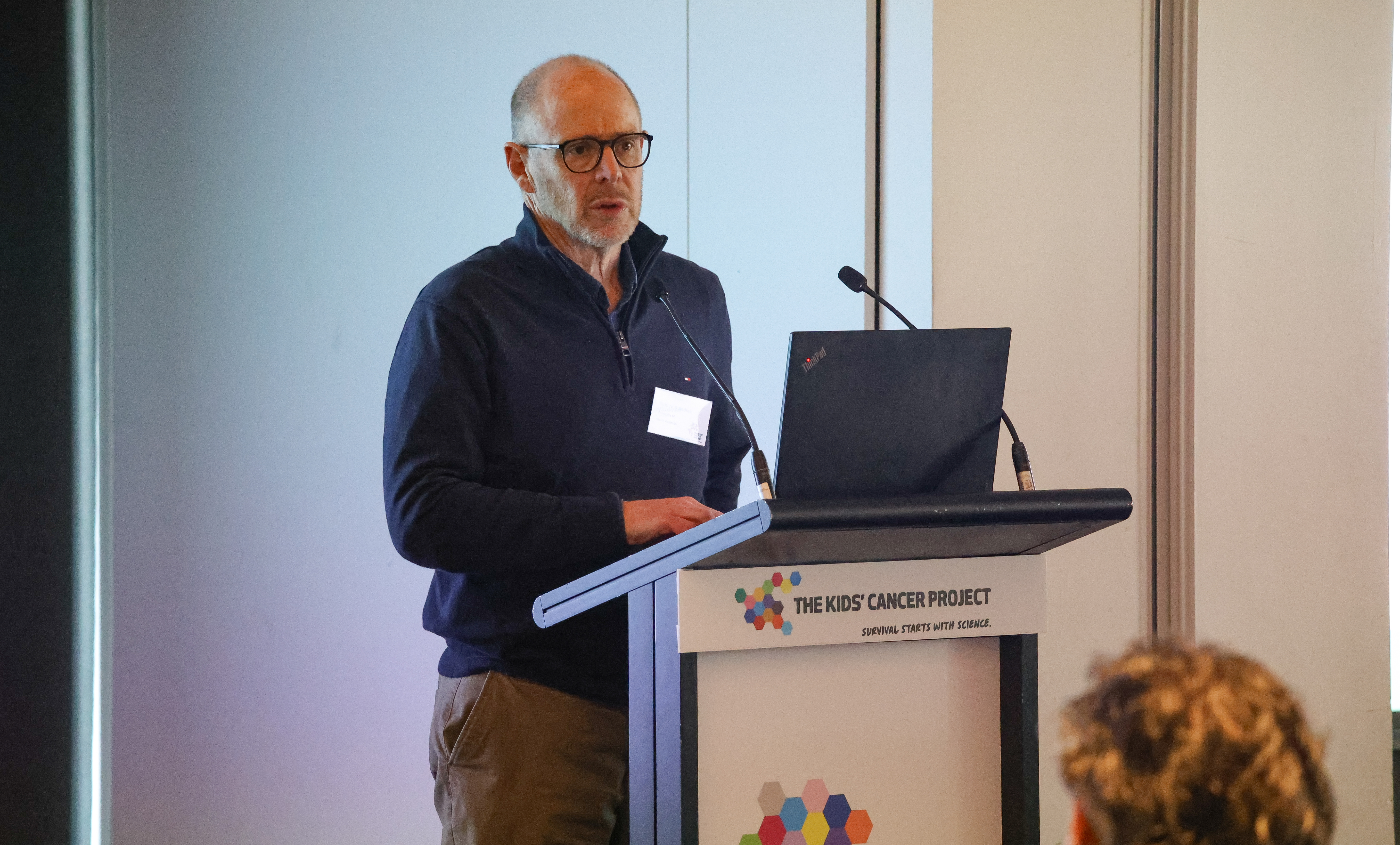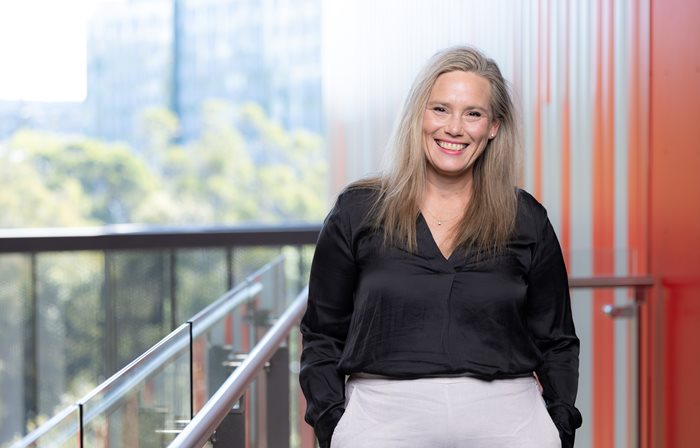Blood Cancer Awareness Month: What we’re doing to improve the lives of kids suffering from leukaemia and lymphoma

In addition to Childhood Cancer Awareness Month, September plays host to Blood Cancer Awareness Month, a worldwide period of remembrance and awareness for those affected by blood cancer, and a time to appreciate those who work to mitigate its effects.
Paediatric blood cancer refers to the likes of leukaemia and lymphoma and their classifications. All forms originate in white blood cells, but leukaemia begins in bone marrow, whereas lymphoma arises in the lymphatic system. All blood cancer subtypes compromise immunity, with common symptoms including fatigue, bruising, bleeding and loss of appetite.
Leukaemia is classified into acute and chronic forms depending on how quickly it develops. Acute lymphocytic leukaemia (ALL) is the most common of all childhood cancers. Lymphoma, on the other hand, is divided into Hodgkin and Non-Hodgkin subtypes, with the latter accounting for the majority of paediatric lymphoma cases.
Treatment for blood cancers currently includes chemotherapy, radiation and targeted therapy, with leukaemia treatment often extending to immunotherapy and bone marrow transplant.
The Kids’ Cancer Project is working with innovative scientists across the country to unlock new, more effective and less harmful treatments for paediatric blood cancer patients. The charity is currently funding $2.2 million worth of research across eight projects and eight research institutes nationwide.
Analysing AML
Dr Richard D’Andrea’s UniSA-based project has received a $250,000 commitment by The Kids’ Cancer Project up until 2027. His project studies DNA of children to improve treatment for acute myeloid leukaemia (AML).
With a 40% relapse rate, Dr D’Andrea is hoping to identify inherited cancer risk genes, reduce risks in stem cell transplants, provide better access to genetic counselling and ease the financial burden on families affected by AML.
“For researchers, Blood Cancer Awareness Month is a time for us to reflect on our work and connect with those affected by these diseases,” Dr D’Andrea says.
“We are fortunate to have an amazing team of patients, families, researchers and clinicians that support our work, so informing them of our progress is really important.
“It is also a time to highlight the need for greater awareness of blood cancers. Unlike more common cancers such as breast, bowel, or prostate cancer, blood cancers affect smaller patient groups and often receive less research attention and philanthropic funding. While many people have a direct connection to the more common cancers, fewer are aware of the urgent need for better and safer treatments for those living with blood cancers.”
Dr D’Andrea’s team is using ZERO’s data and tools to find new germline variants to factor into treatment plans. Harmful genetic changes have been identified in 37 patients, with the team now studying how these variants affect treatment recovery and toxicity. Next, they plan to develop guidelines for doctors on using germline information to guide care, improving outcomes for children and their families.
“We have fantastic support from The Kids’ Cancer Project and well as families directly affected by blood cancer, and we want all donors to know how much their contributions means - to us as researchers, to the families impacted by blood cancer, and to the future of this field.
“Donor support sustains our research and provides crucial career opportunities for outstanding young researchers who bring new knowledge, skills, and passion to the field. Our progress in the blood cancer field is so dependent on this ongoing support to fuel new findings which provide new directions in treatment.
“Progress in blood cancer research is only possible through this ongoing commitment, and we are truly grateful for the role you play in advancing our work.”
Our diverse blood cancer research investments

Five Col Reynolds Fellows are recognised blood cancer researchers.
Head of the Leukaemia Biology and Functional Genomics Laboratory at the Olivia Newton John Cancer Research Institute, Dr Teresa Sadras, is currently investigating why 10-15% of children diagnosed with B-Cell Acute Lymphoblastic Leukaemia (B-ALL) relapse and no longer respond to treatment. She has made significant progress, with early results showing that adult blood cancer drugs may also eradicate leukaemic cells after CAR-T relapse.
Another Col Reynolds Fellow, Dr Rachael Lawson, is spearheading the IMPROVE study, which will help blood cancer patients by making stem cell transplants safer and more effective via a drug called busulfan. Utilising precision medicine techniques to avoid toxicity, Dr Lawson is working to reduce side effects of harsh treatments by determining dosage for childhood blood cancer patients by analysing their genetic profile, paving the way for safer, more personalised care for children with lymphoma across Australia.
The Kids’ Cancer Project is also funding to PhD students focusing on blood cancer. Dr Lorna McLerman is developing a novel form of gene editing technology, while Dr Hannah Walker is focused on mitigating life-threatening lung complications in children after stem cell transplants.
Dr Karin Plummer, an emerging leader in paediatric pain management, is heading up the DECIDE study, which aims to develop a decision aid so parents and healthcare providers can collaborate in creating a personalised pain management plan for the complex pain experienced by children during bone marrow transplantation, common procedure for childhood blood cancer patients.
Away from the Fellows, Dr Rishi Kotecha has received a five-year, $490,000 commitment to facilitate clinical trials relating to the use of novel drug combinations being utilised to treat leukaemia in babies.
In regard to relapsed acute myeloid leukaemia (AML) patients, The Kids' Cancer Project has issued a two-year commitment to Dr Klaartje Somers and the Children’s Cancer Institute, who are targeting an enzyme within an AML cell that is crucial to its survival.
If they’re successful, it’ll mean a more effective, less harmful way to treat AML will become available to clinicians and patients – helping us towards our goal of a 100% survival rate for kids with cancer with no long-term effects.
A monthly donation to The Kids’ Cancer Project allows you to build long-term impact for kids with cancer.
When you commit to survival with a monthly gift of just $22, you will ensure we can continue to fund bold clinical trials for childhood cancers.
Sign up today.

